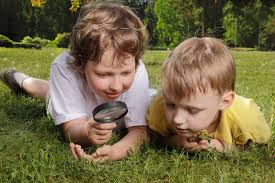Josef Pieper in his book Leisure The Basis of Culture says that education (philosophy and poetry for that matter) begins in wonder. Kevin Clark and Ravi Jain in their new book, The Liberal Arts Tradition, also note that in the classical tradition, education moves from wonder to worship to wisdom (the three W’s of classical education). Can a student truly be a student if she is not compelled to wonder at the startling world into which she was born? A. G. Sertillanges (in The Intellectual Life) says,
Every intellectual work begins by a moment of ecstasy; only in the second place does the talent of arrangement, the technique of transitions, connection of ideas, construction, come into play. Now what is this ecstasy but a flight upwards, away from self, a forgetting to live our own poor life, in order that the object of our delight may live in our thought and in our heart.
Now by ecstasy, Sertillanges is appealing to the literal meaning of the Greek word ecstasis, which means to be lifted up and out of the ones “station” or the place where one is fixed, standing. Children are naturally set to wonder and delight in truth, goodness and beauty–and they are easily cultivated to continue in wonder. Do we really have a student, if he is not still wondering at the cosmos? The Latin studium (from which student is derived) means eagerness, zeal, enthusiasm, even fondness and affection. We could argue that without zeal and affection for truth, goodness and beauty, without love for the lovely–a student cannot truly be a student.
For what it is worth, I explore this theme in the following webinar, recorded and available here: Education in Wonder and Curiosity Webinar









